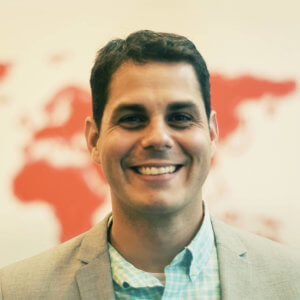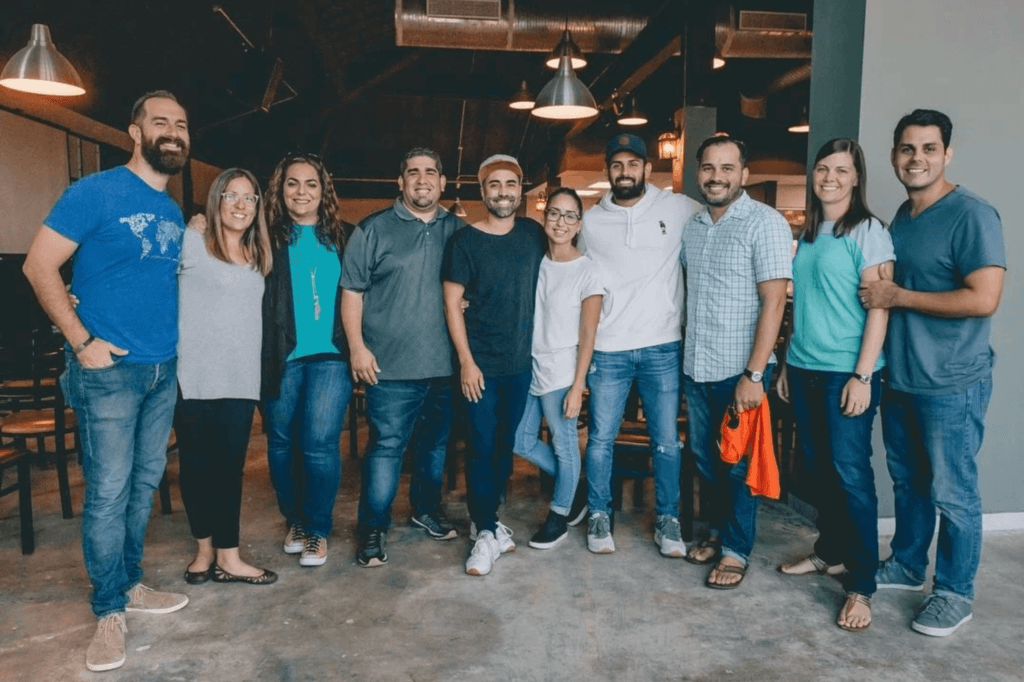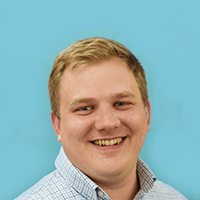Finding Hope After the Hurricane
Ronnie Garcia is the senior pastor at Iglesia La Travesía, a Presbyterian Church in America (PCA) church plant in San Juan, Puerto Rico. During his first seven years of ministry there, he focused on establishing an anchor church in the city, discipling members of the congregation and developing leaders to plant other churches in Puerto Rico.
Ronnie passionately desired to see the gospel flourish in Puerto Rico through the local church. But he never imagined that just a few years later, he and his church would be on the front lines of disaster relief after one of the most catastrophic hurricanes ever to hit U.S. soil.
Mobilizing for Action
When Hurricane Maria made landfall on Puerto Rico on September 20, 2017, the storm brought 100-mile-an-hour winds and widespread flooding. It destroyed the island’s power grid, leaving nearly all residents without electricity, clean drinking water, or cell phone service for weeks. All told, Hurricane Maria caused $90 billion in damage.

“When Hurricane Maria came, it was so devastating that we couldn’t operate as though it was business as usual,” Ronnie says. “You couldn’t walk outside and ignore what was going on. Something had to change.”
When Ronnie and his church witnessed the widespread destruction around them, they immediately realized they had to do something to help their neighbors. They mobilized and joined with other churches and organizations to provide relief in the wake of the storm.
“Our initial relief efforts were island-wide,” says Ronnie. “We helped anyone and everyone with every penny we could, as far and wide as we could.”
As Ronnie and the members of La Travesía worked to help their neighbors, they witnessed the local church serving as the lynchpin of disaster relief, especially in hard-to-reach rural areas. The local pastors they met in those areas often had more awareness of the situation on the ground than their disaster relief partners. These church leaders were able to direct help to the people who needed it most.
They noticed several problems that were making the breathtaking destruction even worse. First, many people who had lost their homes had no official titles or property. In some cases, families had passed land down for multiple generations without an official title. Not only did this make these families socially and financially vulnerable, it also meant they didn’t qualify for financial assistance from FEMA to repair their damaged homes. Without help, they wouldn’t be able to rebuild.
They also noticed that the disaster was only highlighting long-standing brokenness in some communities.
“We would deliver water and supplies to a village, and a few weeks later when we came back, people were just waiting around for the next delivery,” Ronnie says. “They weren’t able to see themselves as contributors in the process of rebuilding their community.”
As time went on, Ronnie realized that Iglesia La Travesa needed a longer-term strategy for helping their neighbors.
Moving Beyond Relief
As Ronnie and his church continued helping their neighbors and planning their next steps, he remembered a book he had read in seminary: When Helping Hurts.
“I began to reread the book, because I wanted us to do things skillfully,” Ronnie says. “I don’t know of a book that is as simple and straightforward and serves as a better introduction to some counterintuitive principles that are incredibly important.”

Inspired by When Helping Hurts, Ronnie and his church began shifting their approach. Ronnie created a new organization called Christ Collaborative, a group of churches working together to coordinate their response to Hurricane Maria.
“We mapped out where we were all going and what we were trying to do,” says Ronnie. “We started thinking together about how to empower people, because if they were still dependent on us for water after six months, then all we did was delay their destruction.”
They began to move from providing emergency relief to focusing on rehabilitation, working to involve people in rebuilding their own communities. To help create a shared vision, they began offering workshops centered around When Helping Hurts for local pastors in the communities that were receiving resources from them. As short-term volunteer teams began arriving from the United States to help, When Helping Hurts also provided a helpful framework for Ronnie and others to receive them.
Building a New Community
Today, Iglesia La Travesía has moved beyond relief and rehabilitation to long-term development. They’ve focused on building relationships with their neighbors in the nearby community of Sector La Hormiga, a slum with around 200 residents.
“We get together with no agenda for barbecues where we just eat together and just enjoy each other,” Ronnie says. “We can’t change all of Puerto Rico, but we can invest deeply into one community. We’re going to invest and see what God does over the next 3-5 years!”
As the church builds relationships in Sector La Hormiga, they are working to introduce vocational training for residents and training in micro-enterprises that can provide them sustainable income.
We can’t change all of Puerto Rico, but we can invest deeply into one community. We’re going to invest and see what God does over the next 3-5 years!
Measuring the impact of these long-term efforts is difficult. But perhaps the most significant changes have been internal. Ronnie, his middle-class congregation, and the materially poor community of Sector La Hormiga are experiencing lasting transformation in their lives as they learn and grow together.
No one’s the same after something this,” Ronnie says. “When you enter into a relationship with people, it’s like two strangers are humanizing each other. We’re grateful to be a part of that!”


